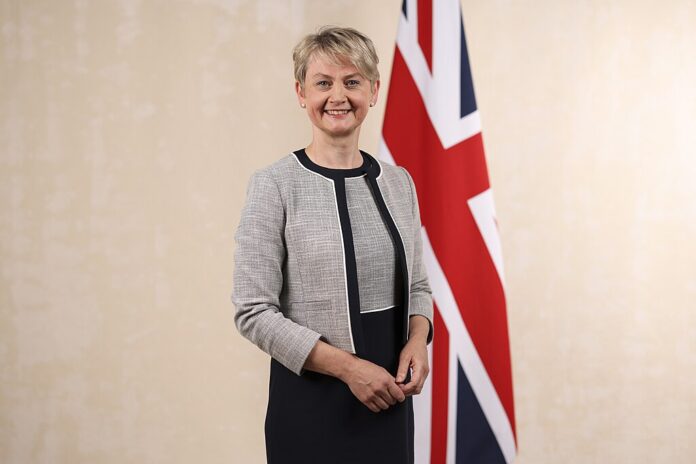UN experts and 266 lawyers say a ban on Palestine Action equates protest with terrorism
Home Secretary Yvette Cooper is under intense pressure to drop her controversial plan to ban Palestine Action as a terrorist group, with leading human rights experts and legal figures warning it would mark a dangerous assault on democratic freedoms.
In coordinated interventions on Tuesday, two separate letters from legal networks and a group of UN special rapporteurs strongly criticised the move, warning that criminalising direct action protests would blur the line between peaceful dissent and terrorism — a step they argue belongs in authoritarian states, not Britain.
Palestine Action, known for targeting premises of Israeli arms companies with paint, blockades and damage to property, has long been a lightning rod for political debate. But the decision to consider proscribing it under the Terrorism Act 2000 has triggered a backlash far beyond its support base.
The Network for Police Monitoring (Netpol), backed by 266 legal signatories — including 11 KCs and law professors — declared: “Proscription of a direct-action protest group is an unprecedented and extremely regressive step for civil liberties.” They added, “The conflation of protest and terrorism is the hallmark of authoritarian regimes.”
In a separate letter organised by the Haldane Society of Socialist Lawyers, major legal figures such as Michael Mansfield KC and Imran Khan KC, along with thousands of other signatories including actors Juliet Stevenson and Adeel Akhtar, urged Cooper to think again. The letter warns that criminalising those who even wear a pro-Palestine Action t-shirt could become possible under the ban — a chilling scenario for civil rights.
“The precedent this sets would endanger other causes, from climate protests to trade unionism,” the letter says. “This is not about whether one agrees with Palestine Action’s tactics. It’s about defending the right to protest.”
Embed from Getty ImagesMeanwhile, UN special rapporteurs wrote to the UK government expressing concern. They stressed that protests involving property damage, without intent to kill or injure, do not meet the threshold for terrorism under international standards. “Mere property damage is not sufficiently serious to qualify as terrorism,” they said.
Their statement echoed fears that protest is being redefined under vague and politicised criteria. “Protest actions that are not genuinely ‘terrorist’ but involve property damage should be properly investigated as ordinary crimes.”
The mounting concern came on the same day two Palestine Action members were arrested after blocking the entrance of Elbit Systems in Bristol — one of several arms manufacturers regularly targeted by the group. Police arrested a 30-year-old woman and a 36-year-old man for criminal damage and causing serious disruption. Activists smeared the building in red paint, which they said symbolised “Palestinian bloodshed”.
In her statement last week, Cooper defended the move, arguing the group’s actions were not “legitimate protest” and that they met the legal threshold for terrorism. A Home Office spokesperson reiterated those claims on Tuesday.
But pressure is mounting from within Labour’s own legacy. Prime Minister Keir Starmer was once a member of the Haldane Society before resigning in 2008 when he became Director of Public Prosecutions. Now, many former colleagues are asking him and Cooper to reconsider what they see as a betrayal of long-held civil liberties.
With MPs expected to vote on the proposed ban on Wednesday, the debate is far from over. As protests simmer and legal experts speak out, Cooper faces a critical decision — one that could define the boundaries of lawful protest for years to come.
